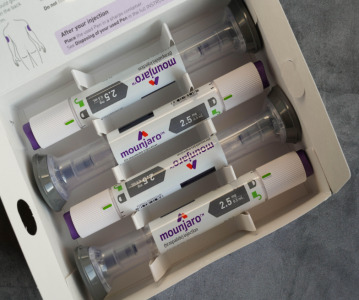Merck gets the thumbs up in Europe for Keytruda to treat patients with metastatic NSCLC

First anti-PD-1 therapy approved in Europe for previously untreated patients with metastatic NSCLC.
Merck (MSD) has received approval from the European Commission for Keytruda (pembrolizumab), the company’s anti-PD-1 therapy, for the first-line treatment of metastatic non-small cell lung cancer (NSCLC) in adults whose tumuors have high PD-L1 expression (tumour proportion score [TPS] of 50% or more) with no EGFR or ALK positive tumour mutations.
“The approval of Keytruda as a first treatment instead of chemotherapy for patients who express high levels of PD-L1 has the potential to transform the way metastatic NSCLC is treated,” said Dr Roy Baynes, senior vice president, head of clinical development, and chief medical officer, Merck Research Laboratories. “We are committed to ensuring that patients in Europe – who are in need of new treatment options – are able to quickly gain access to Keytruda.” The approval is based on Phase III data, which demonstrated superior overall survival (OS) and progression-free survival (PFS) with Keytruda compared with chemotherapy, the current standard of care for advanced NSCLC. The approval allows marketing of Keytruda in all 28 EU member states plus Iceland, Lichtenstein and Norway, at the approved dose of 200 mg every 3 weeks until disease progression or unacceptable toxicity. In August 2016, Keytruda (pembrolizumab) (2 mg/kg every 3 weeks) was approved in Europe for previously-treated patients with locally advanced or metastatic NSCLC whose tumours express PD-L1 (TPS of 1% or more) and who have received at least one prior chemotherapy regimen. “The data demonstrate that Keytruda provided meaningful improvements in survival versus the current standard of care in patients whose tumours express high levels of PD-L1,” said Dr Luis Paz-Ares, chair of the medical oncology department, Hospital Universitario Doce de Octubre, Madrid, Spain. “These findings supporting the approval also provide further rationale for biomarker testing to identify those patients more likely to benefit the most from treatment with Keytruda.”
Related News
-
News PSCI Welcomes Delpharm, Samsung Biologics, and Suven as First Supplier Partners
The pharmaceutical industry continues to evolve with an increasing focus on responsible sourcing, sustainability, and collaboration across the supply chain. Under a new model to recognise suppliers within the pharmaceutical and healthcare industry that... -
News Drug prices agreed upon as part of the US Inflation Reduction Act
The Inflation Reduction Act brought into constitution by the Biden administation in 2022, which proposed a drug price negotiation between the government and pharmaceutical companies, has reached it's first agreement. -
News Eisai Alzheimer’s drug authorised in UK but still faces obstacles
In partnership with BioArctic AB, pharmaceutical company Eisai has been granted Marketing Authorisation by the Medicines and Healthcare products Regulatory Agency (MHRA) for its Alzheimer’s disease drug product Leqembi. -
News Eli Lilly's weight loss drugs removed from the FDA's shortage list
The US FDA have recently updated their drug shortage list. The recently released list shows that all dosage forms of Eli Lilly's weight-loss drug Zepbound and their diabetes drug Mounjaro are now available. -
News Global advancements in the diagnosis and treatment of rare diseases: Rare Disease Day 2024
Rare Diseases Day is celebrated on the 29th February 2024 and represents the plight of rare disease patients to gain diagnosis and access to suitable treatment. -
News Pharmaceutical industry supports COP28 health stance in joint statement
As COP28 takes place over this week in Dubai, UAE, several bodies in the pharmaceutical and health industries have come together to announce support of key movements in sustainability in the sector, and to recognise sustainability as a health issue.&nb... -
News Biden backs Cold-War measures to shore-up medical supply chains
In a recent strategy to combat rising inflation and the cost of living crisis, President Joe Biden has invoked a Cold War-era act to increase investment in a selection of medicines and supplies. -
News CPHI Podcast Series: What does the changing US Pharma market mean for industry and patients alike?
In this week's episode of the CPHI Podcast Series Lucy Chard, Digital Editor for CPHI Online is joined by James Manser to discuss the political and market changes in the US pharma field.
Position your company at the heart of the global Pharma industry with a CPHI Online membership
-
Your products and solutions visible to thousands of visitors within the largest Pharma marketplace
-
Generate high-quality, engaged leads for your business, all year round
-
Promote your business as the industry’s thought-leader by hosting your reports, brochures and videos within your profile
-
Your company’s profile boosted at all participating CPHI events
-
An easy-to-use platform with a detailed dashboard showing your leads and performance


.png)




